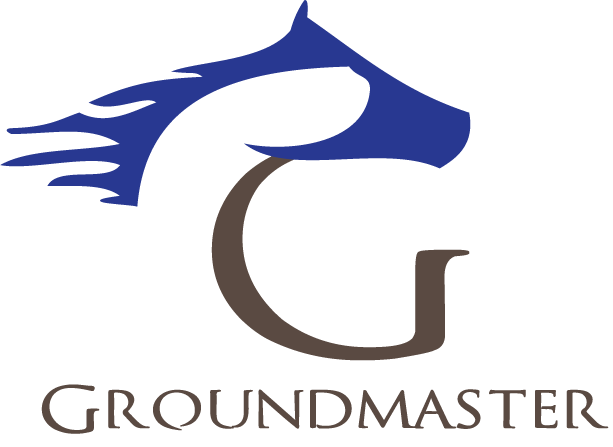4 Questions to Ask Before Choosing Your Horse’s Supplement(s)
You’ve decided your horse needs supplements. You know there are a lot (100’s in some categories) to choose from. You know you need to do some research. You’re reading labels (which is totally confusing) and comparing ingredients and amounts to feed.

How do you know which one’s right for your horse? I mean, after all, you want to know that you’re spending your money wisely and that you’re going to see something in return!
>> Your mission, should you choose to accept it, is to find the right supplement <<
Oh… but that would be too easy!
Every advertisement and most packaging labels say it’s “the right supplement” and will give you “AMAZING” results in just a few weeks (or months).
But that’s NOT YOUR HORSE in the ad. YOUR horse has a unique physical makeup, unique nutritional needs, and perhaps a unique health situation, which is what made you look for a supplement in the first place.
So your actual mission is to find the RIGHT SUPPLEMENT for YOUR HORSE.
But how?
You’ll do it by finding the answers to these 4 questions. Read on!
How Much Will Horse Supplements Help?
Based on your horse’s condition (level of lameness, hoof loss, coat condition, other), you want to know how much a particular supplement can realistically help. One ad reads, “My horse went from death’s door to show ring gorgeous in 3 weeks!”
Another says, “I thought he was done! When 3 vets told me there was no hope… then a friend told me about…. Four months later, we were back to winning at big jackpots!”
Yes, your horse is unique. But, sadly, on close inspection, most supplements are not unique. Every supplement in a given category generally contains the same ingredients with slight differences in amount, description, mixture, and cost.
For example, here are the formulas (per serving) of 4 common hoof supplements:
| Farrier’s Formula Original | Grand Hoof + MSM | Source Focus HF | Vita Flex Masters Hoof |
| Biotin 20mg Methionine 5,300mg Zinc 250mg Copper 92mg Calcium 3,060mg Lysine 1,550mg Other: Omega 3 | Biotin 20mg Methionine 3,000mg Zinc 250mg Copper 50mg Calcium — Lysine 1,500mg Other: Prebiotic Yesast, MSM (5,000mg), Vitamin B6 (20mg) | Biotin 10mg Methionine 3,147mg Zinc 255mg Copper 79mg Calcium — Lysine 1,616mg Other: — | Biotin 20mg Methionine 1,800mg Zinc 45mg Copper 15mg Calcium — Lysine 1,500mg Other: Manganese (50mg), Vitamin B6 (50mg) |
How much will it help? That depends on the answers to MORE questions:
- What else does he eat? How much?
- What’s the nutritional value of what he eats?
- Are there other deficiencies or conditions contributing to his hoof health?
Discussing all of these questions with your vet isn’t the sexiest way to figure this out, but it will be the most efficient. That, along with an examination and blood work.
>> CAVEAT<<
Some veterinarians stock and resell certain horse supplements. There’s nothing wrong with that! But they will likely push those on you first when applicable.
Armed with a solid understanding of your horse’s current nutrition, the exam results, and the blood work, you are now more empowered than ever to read the label and make your own choice!
If you suddenly feel like Ethan Hunt (Tom Cruise) or Ilsa Faust (Rebecca Ferguson) in Mission Impossible – well, you’re welcome.
How Will I Know it’s Working?
Nothing is going to change overnight, so it will be crucial for you to keep notes.
- Make detailed notes from your first exam and blood work with the veterinarian. Ask your vet what things you should be looking for to indicate progress. Write that down.
- Talk to your trainer, coach, farrier (if hoofs or lower limb lameness is the problem), or chiropractor (if other body soreness, etc. are the issues) and make notes from their pre-supplement examinations and opinions. They are likely to see your horse more often than your vet.
- Once you start the supplement, make a detailed update to your notes each week.
- When you revisit your trainer, coach, farrier, or chiropractor, ask them if they see anything different. You look at your horse every day, and it’s easier for a fresh pair of eyes to see changes.
How long will it take to start working and see results?
Again, nothing is likely to change overnight. Depending on your horse’s situation, it might take months or years. It might also require changes in diet, training, and different supplements.
Review your notes every 2-3 months. If you haven’t seen improvement after 6 months, consider another visit with your vet.
Staying up to date with your own detailed notes and periodically checking in with your vet will help you know what’s working, what’s not, and what to try next.
How Do I Sort Through This Crazy Supplement Maze?
Here are four steps for sorting through the crazy horse supplements maze:
- Stop shopping the supplement aisle at the tack/feed store
- Stop listening to friends who tell you they just “love LOVE love ABC supplement!”
- Take your horse, your concerns, the label(s) from your horse’s feed bag, and samples of his hay to your vet. Get an exam and a lab report. You can even have them do a hair analysis!
- Consider purchasing the book, The Horse Journal Guide to Equine Supplements and Nutraceuticals. It’s the absolute all-time best resource you can have at your fingertips.
Written by Dr. Eleanor M. Kellon, VMD, and published in 2008 (as far as I can tell, there’s not a later edition), it contains detailed explanations of various conditions, causes, and brand name supplement comparison charts to help you make good decisions.
What makes this book such a valuable resource is the fact that it is based on pure research. No product manufacturer or drug company paid anyone to write this. It’s the result of the author’s veterinary experience mixed with TONS of actual product on shelves research and the outcomes of field trials and product recommendations gathered by The Horse Journal.
The Horse Journal (aka, Michael Plumb’s Horse Journal, in print from 1994-2014) was the first-of-its-kind equine magazine to share opinions honestly and openly about specific product brands. They never accepted advertising, and their product trial findings are often quoted by manufacturers.
Conclusion on Horse Supplements
To open the first chapter of her book, Dr. Kellon says, “Whether or not your horse needs a supplement depends on two things – the levels already present in his diet and what his needs are. If needs are being met by diet, he doesn’t need more. It’s that simple. More is not better. At best, more is a waste…at worst, more is toxic.”
As a horse owner, you likely have some skilled professionals at your disposal. Ask questions. Get the lab work. Then decide how best to spend (the rest of ) your money.
What are your thoughts on horse supplements? Have some you love? What results have you seen? Share your story with us! We’d love to hear from you!


